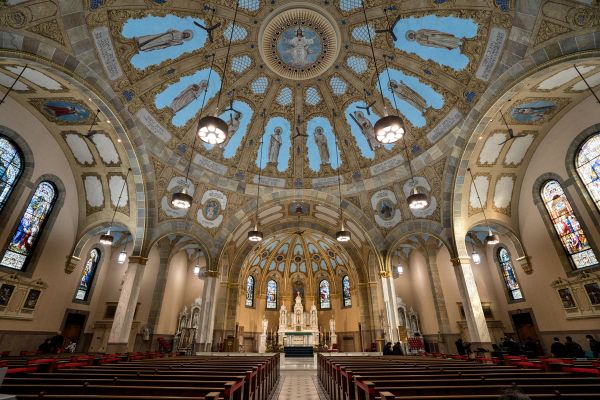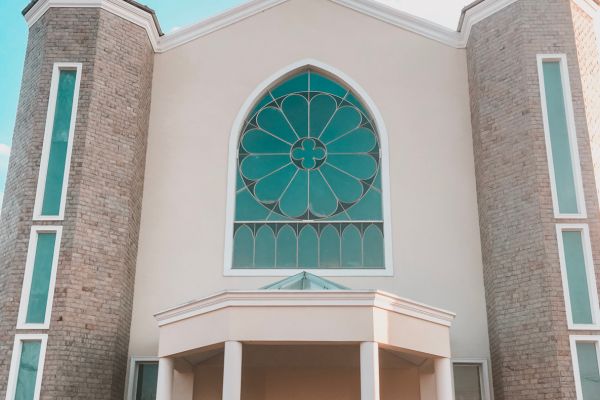In today’s dynamic religious landscape, churches often find themselves in need of financial support to grow, renovate, or expand their facilities. Commercial loans for churches have become an increasingly popular solution, offering religious organizations the opportunity to fulfill their mission while managing their financial responsibilities. This comprehensive guide will explore the intricacies of commercial loans for churches, providing valuable insights for church leaders, financial committees, and congregations alike.
Understanding Commercial Loans for Churches
Commercial loans for churches are specialized financial products designed to meet the unique needs of religious organizations. These loans differ from traditional personal or business loans in several key aspects, tailored to accommodate the specific financial structures and operational models of churches.
Key Features of Church Commercial Loans
- Flexible Terms: Lenders often offer customizable repayment terms to align with the church’s cash flow and budgetary constraints.
- Larger Loan Amounts: Commercial loans for churches typically provide access to higher funding amounts compared to personal loans, allowing for significant projects or acquisitions.
- Collateral Requirements: Depending on the loan size and the church’s financial standing, lenders may require collateral, often in the form of church property or assets.
- Specialized Underwriting: Lenders experienced in church loans understand the unique income streams and financial structures of religious organizations, allowing for more accurate risk assessment.
- Tax Considerations: As non-profit entities, churches may benefit from certain tax advantages related to commercial loans, which knowledgeable lenders can help navigate.
Types of Commercial Loans Available to Churches
Churches have access to various types of commercial loans, each serving different purposes and financial needs. Understanding these options is crucial for making informed decisions.
1. Construction Loans
Construction loans are ideal for churches looking to build new facilities or undertake major renovations. These loans typically feature:
- Staged funding disbursements aligned with construction milestones
- Interest-only payments during the construction phase
- Conversion to a permanent loan upon project completion
2. Mortgage Loans
Mortgage loans allow churches to purchase existing properties or refinance current mortgages. Key aspects include:
- Long-term financing, often with terms up to 30 years
- Fixed or variable interest rates
- Potential for lower interest rates compared to other loan types
3. Line of Credit
A line of credit provides churches with flexible access to funds for short-term needs or unexpected expenses. Benefits include:
- Draw funds as needed, up to a predetermined limit
- Pay interest only on the amount borrowed
- Revolving credit, allowing for repeated use as the balance is paid down
4. Equipment Loans
For churches needing to purchase or upgrade equipment such as sound systems, HVAC units, or vehicles, equipment loans offer:
- Financing specifically for tangible assets
- The equipment itself often serves as collateral
- Potential tax benefits through depreciation
5. Bridge Loans
Bridge loans provide short-term financing to “bridge” the gap between immediate funding needs and long-term financing solutions. Features include:
- Short loan terms, typically 6 to 18 months
- Higher interest rates due to the short-term nature
- Quick approval and funding processes
Qualifications for Church Commercial Loans
Securing a commercial loan for a church requires meeting specific qualifications set by lenders. While requirements may vary, common criteria include:
1. Financial Stability
Lenders will assess the church’s financial health, including:
- Consistent or growing attendance and membership
- Stable or increasing tithing and donation income
- Well-managed expenses and budgets
2. Credit History
The church’s credit history and that of its leadership may be evaluated, considering:
- Timely payments on existing debts
- Credit scores of key church officers or board members
- Overall credit utilization and management
3. Debt Service Coverage Ratio (DSCR)
This ratio measures the church’s ability to cover loan payments with its current income. A higher DSCR indicates stronger financial health and loan repayment capacity.
4. Leadership and Governance
Lenders may assess the church’s leadership structure and governance practices, looking for:
- Experienced and stable leadership team
- Clear decision-making processes
- Transparent financial management practices
5. Collateral
Depending on the loan type and amount, collateral may be required. This can include:
- Church property or land
- Valuable assets owned by the church
- Personal guarantees from church leaders (in some cases)
Benefits of Commercial Loans for Churches
Commercial loans offer numerous advantages for churches seeking to grow or improve their facilities:
- Immediate Access to Funds: Loans provide the necessary capital for time-sensitive projects or opportunities.
- Preservation of Savings: By utilizing loans, churches can maintain their savings for emergencies or other priorities.
- Improved Facilities: Loans enable churches to upgrade or expand their facilities, potentially attracting new members and better serving their congregation.
- Financial Flexibility: With various loan options available, churches can choose the most suitable financial solution for their specific needs.
- Building Credit: Responsibly managing a commercial loan can help churches establish or improve their credit profile, potentially leading to better financing options in the future.
Challenges and Considerations
While commercial loans offer significant benefits, churches should also be aware of potential challenges:
- Debt Burden: Taking on debt requires careful financial planning to ensure the church can meet its obligations without compromising its mission or operations.
- Interest Costs: The total cost of the loan, including interest, should be carefully considered in the context of the church’s long-term financial health.
- Collateral Risk: If the loan is secured by church property, there’s a risk of losing the asset in case of default.
- Approval Process: The loan approval process can be lengthy and may require extensive documentation and financial scrutiny.
- Regulatory Compliance: Churches must ensure that taking on commercial debt aligns with their non-profit status and any applicable regulations.
Steps to Secure a Commercial Loan for Your Church
Obtaining a commercial loan for your church involves several key steps:
1. Assess Your Financial Needs
- Clearly define the purpose of the loan
- Determine the exact amount needed
- Consider future financial projections and repayment capacity
2. Gather Required Documentation
Prepare essential documents, including:
- Financial statements (balance sheets, income statements, cash flow statements)
- Tax returns (if applicable)
- Church bylaws and constitution
- Membership and attendance records
- Detailed project plans or proposals (for construction or renovation loans)
3. Research Lenders
- Look for lenders experienced in church financing
- Compare interest rates, terms, and fees from multiple lenders
- Consider both traditional banks and specialized church lenders
4. Prepare a Loan Proposal
Develop a comprehensive loan proposal that includes:
- Church history and mission
- Leadership structure and experience
- Financial projections and repayment plans
- Detailed explanation of loan purpose and expected benefits
5. Apply for the Loan
- Submit applications to selected lenders
- Be prepared for follow-up questions or requests for additional information
- Consider seeking professional assistance for complex applications
6. Review and Negotiate Terms
- Carefully review all loan offers
- Negotiate terms if possible, focusing on interest rates, repayment schedules, and fees
- Seek legal counsel to review loan agreements before signing
7. Finalize the Loan
- Complete all required paperwork
- Ensure all church decision-makers are in agreement
- Understand all terms and conditions before finalizing the loan
Best Practices for Managing Church Commercial Loans
Once a church has secured a commercial loan, proper management is crucial for financial health and mission fulfillment:
- Create a Dedicated Repayment Plan: Develop a clear strategy for loan repayment, including budget allocations and potential fundraising initiatives.
- Maintain Open Communication: Keep the congregation informed about the loan, its purpose, and the repayment progress to maintain transparency and trust.
- Monitor Financial Performance: Regularly review financial statements to ensure the church remains on track with loan obligations and overall financial health.
- Consider Accelerated Repayment: When possible, make extra payments to reduce the overall interest cost and loan duration.
- Implement Financial Controls: Establish strong financial management practices to ensure loan funds are used appropriately and efficiently.
- Plan for Contingencies: Maintain an emergency fund to cover loan payments in case of unexpected financial challenges.
- Seek Professional Advice: Consult with financial advisors or accountants specializing in non-profit organizations for ongoing guidance.
Conclusion
Commercial loans for churches can be powerful tools for growth, expansion, and improvement of religious facilities. By understanding the various loan options, qualification requirements, and best practices for management, churches can make informed decisions that align with their mission and financial capabilities. While taking on debt requires careful consideration, the strategic use of commercial loans can enable churches to better serve their congregations and communities, fostering spiritual growth and outreach for years to come.
Frequently Asked Questions
- Q: Can a church qualify for a commercial loan without a long financial history? A: While a established financial history is beneficial, some lenders specialize in working with newer churches. These lenders may focus more on current financial health, leadership experience, and growth projections when evaluating loan applications.
- Q: Are there government-backed loan options available for churches? A: While churches typically don’t qualify for many government loan programs due to separation of church and state, some community development programs or disaster relief loans may be available depending on the circumstances and location.
- Q: How does a church’s non-profit status affect its ability to obtain a commercial loan? A: Non-profit status generally doesn’t prevent churches from obtaining commercial loans. However, it may affect the types of loans available and how they’re structured. Lenders familiar with church financing understand these nuances.
- Q: What if a church can’t provide traditional collateral for a loan? A: Some lenders offer unsecured loans based on the church’s financial strength and cash flow. Alternatively, churches might consider using future pledges or donation commitments as a form of collateral.
- Q: Can a church use a commercial loan to refinance existing debt? A: Yes, many churches use commercial loans to refinance existing debt, often to secure better interest rates or more favorable terms.
- Q: How long does the approval process typically take for a church commercial loan? A: The approval process can vary widely, from a few weeks to several months, depending on the loan amount, complexity of the church’s finances, and the lender’s process.
- Q: Are there special considerations for multi-site churches seeking commercial loans? A: Multi-site churches may need to provide more detailed financial information, showing the financial health of each location. Lenders may also consider the overall organizational structure and management of multiple sites.
- Q: How does seasonal giving affect a church’s ability to qualify for a commercial loan? A: Lenders experienced with church finances understand seasonal giving patterns. They typically look at annual trends and may structure repayment terms to align with these patterns.
- Q: Can a church use a commercial loan to start a new ministry or outreach program? A: Yes, churches can use commercial loans for various purposes, including starting new ministries. However, lenders may want to see a solid business plan and projected returns for such initiatives.
- Q: What happens if a church struggles to make loan payments? A: If a church faces difficulty making payments, it’s crucial to communicate with the lender immediately. Many lenders are willing to work out modified payment plans or temporary solutions to help churches through financial challenges.







